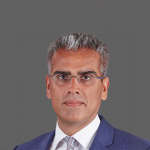Ask yourself this question: do you think of yourself as a professional? For many readers of this blog, I suspect the answer to that question is a rather straightforward, Yes. Now ask yourself this question. Does thinking of yourself as a professional make you more or less ethical?
That is the fascinating issue explored in a new paper from Maryam Kouchaki from the Edmond J. Safra Center for Ethics at Harvard. I urge all of you with an interest to read it.
She begins by exploring why one might doubt the ethicality of professionals. One thread she draws upon is work on moral licensing. The theory that one’s ostensibly positive history, context or group membership permits, ‘one to legitimately do or say something that otherwise would discredit the self’. There is a line of research that demonstrates this moral licensing effect. To give a topical example which might be applied to debates about judicial diversity, managerial decisions in organisations that are explicitly presented as meritocractic favour men over women by paying equally qualified men more than women (citing Castilla and Bernard’s work, see the paper for details). To continue in that theme, people led to believe they are objective are more likely to demonstrate bias.
Is it possible, then, that the moral superiority claimed by professionals has negative impacts. Does thinking we are good, make us bad? A second reason Kouchaki suggests this might be the case is that professional schema may emphasise self-identities (or schemas or professional performance) that privilege rational over emotional intelligence. Many lawyers will I suspect agree that this is so, but argue it is a good thing. Kouchaki draws on moral psychology to point to the dangers of such a view.
Theory aside, the piece concentrates on a narrower hypothesis: a professional self-conception increases the likelihood of unethical behaviour. Thinking of oneself as professional increases the likelihood that one does wrong. Does this hypothesis stand up?
It is tested in three studies using students. In these studies the students are primed to think of themselves (or a third party) as either an employee or a professional and then asked to perform particular tasks. The first of these involved a conflict of interest task. They are asked to advise a third party how many beans are in a jar. If they exaggerate the number beyond the true number they stand to gain. In the second and third experiments they were given a cheating task. They are incentivised to cheat on their answers to a test. In these experiments those who were primed to think of themselves as professionals were more likely to behave unethically by overestimating to benefit themselves in a situation of conflict of interest or cheating on the test. The assumption is, and the evidence of these tests supports it, that assuming the role of a professional leads to more unethical acts. The ‘professionals’ cheated more.
A fourth study was a survey using Amazon’s mechanical turk with a similar behavioural test to the first study. The survey identified respondents’ actual occupations and professional identification. Again identifying as a professional (which included a range of occupations such as doctors and lawyers) was a significant predictor of unethical behaviour. This time the identification as a professional was based on the person’s actual occupation, rather than simply being asked to imagine they were a professional.
The implication is that thinking of oneself as a professional increases the likelihood of unethical behaviour. Now of course this is a study which measures unethical behaviour within surveys rather than in the real world. It is possible that being a professional might make one more tolerant of minor ‘ethical’ infractions, particularly when they occur within the context of surveys.
It is similarly possible that thinking of oneself as a professional is rather different from actually being a professional and working in the professional domain. So this study does not prove that a lawyer would be more or less ethical when being a lawyer simply because they see themselves as a professional; but it does alert us to the plausible risk of that possibility. Similarly, there are many other influences on a professional qua professional; the rules, their training, and their environment, to name three. Nevertheless, the results are troubling and a signal that us professionals should not be too quick to reject the risk that we may be prone to go a little too easy on ourselves as ethically superior when taking decisions or forming judgments. Thinking of ourselves as professional is not enough; we have to be professional too.
Richard Moorhead is a law professor at UCL and writes at Lawyer Watch. Click here to follow him on Twitter.











